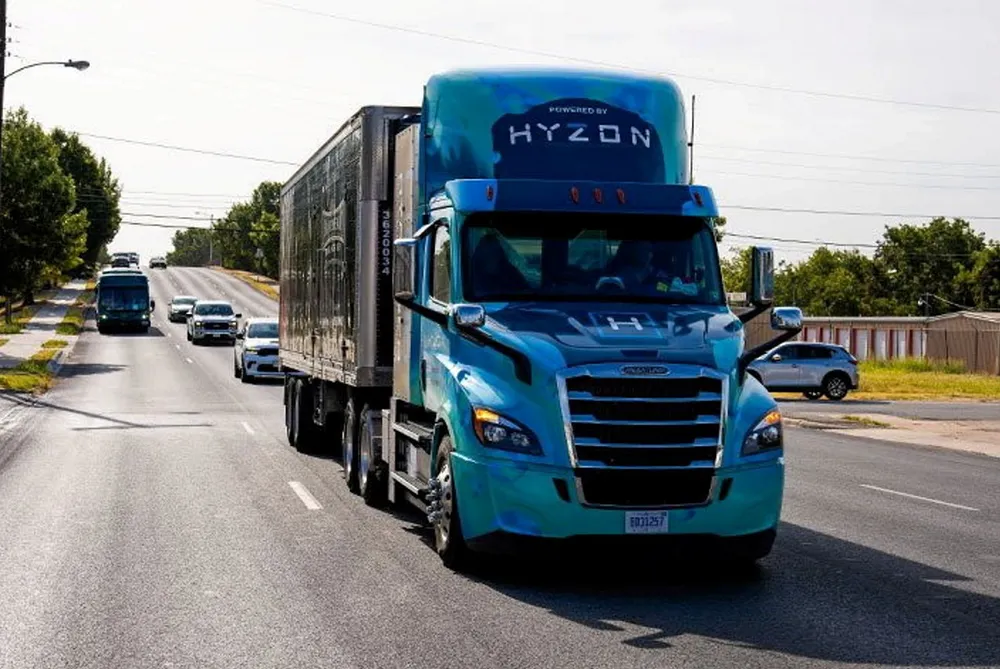Hyzon's first liquid hydrogen-fuelled truck travels 870km without refuelling in 16-hour test run
Liquefied H2 is ‘economical’ option for heavy-duty vehicles due to higher fuel density, says zero-emission truck maker’s CEO — despite risk of boil-off

Liquefied H2 is ‘economical’ option for heavy-duty vehicles due to higher fuel density, says zero-emission truck maker’s CEO — despite risk of boil-off
